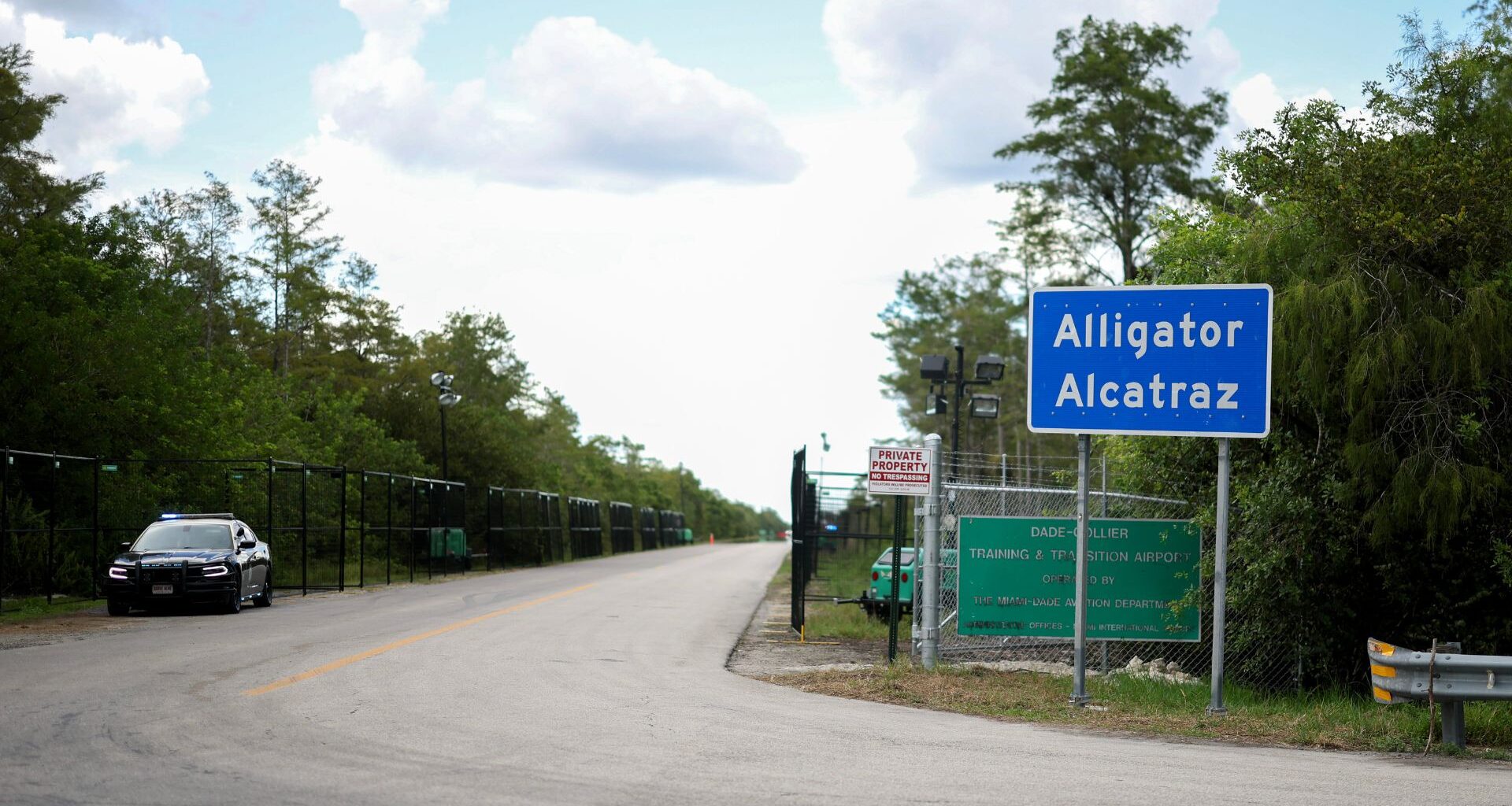A federal judge has ordered an indefinite stop to new construction at a Florida immigration detention facility known as “Alligator Alcatraz.” The ruling also prevents any new detainees from being transferred to the site.
The decision supported environmental groups who argued that the facility threatens the Everglades and its wildlife.
The ruling is a setback for Florida’s Republican-led government and its efforts to support the Trump administration’s strict immigration policies, which include deputizing state police as federal immigration officers.
U.S. District Court Judge Kathleen Williams clarified that the state can continue to use existing structures to detain immigrants, but no additional detainees can be brought to the site. Plans to expand the detention center are now blocked.
Environmental damage in the Everglades
Judge Williams’ decision follows a temporary restraining order she issued two weeks ago, halting construction at the remote camp. The facility had faced criticism for harsh conditions, detainee abuse, and a lack of due process.
In her 82-page ruling, Williams found that the facility was causing severe and irreparable damage to the fragile Everglades. She noted that the land was previously considered for a major airport in the 1960s, but the plan was rejected to protect the ecosystem.
“Since that time, every Florida governor, every Florida senator, and countless local and national political figures, including presidents, have publicly pledged their unequivocal support for the restoration, conservation, and protection of the Everglades,” Williams wrote.
“This order does nothing more than uphold the basic requirements of legislation designed to fulfill those promises.”
The judge also ordered that after 60 days, all construction materials, fencing, generators, and fixtures must be removed from the site. The number of detainees currently held, estimated at about 700, cannot increase.
Victory for environmental groups and tribes
The ruling was a major win for environmental organizations and the Miccosukee tribe, who filed a lawsuit against Florida and federal authorities. They argued that the jail, built in just eight days on a disused airfield, damaged sensitive wetlands and endangered species.
“This is a landmark victory for the Everglades and countless Americans who believe this imperiled wilderness should be protected, not exploited,” said Eve Samples, executive director of Friends of the Everglades.
State and federal authorities are prohibited from adding new tents or performing paving and excavation at the site. They can, however, maintain existing facilities for safety.
Broader immigration context
Alligator Alcatraz is one of several facilities Republican-led states offered to the Trump administration for immigration detention. Indiana and Nebraska also allowed state sites to hold deportees.
The lawsuit challenging Alligator Alcatraz focused on environmental concerns, as the Everglades are a sensitive ecosystem and a source of drinking water for many Floridians. The plaintiffs said federal environmental reviews should have been completed before opening the facility.
Florida officials argued the site is a state-run facility and not subject to federal environmental laws. The Trump administration promised to reimburse Florida using federal funds.
A separate legal case is also underway regarding detainees’ rights. U.S. District Court Judge Rodolfo Ruiz partially dismissed that case because an immigration court had been designated to hear claims from those at Alligator Alcatraz.
However, he allowed claims about detainees’ rights to in-person and confidential legal consultations to continue.
In preparation for Judge Williams’ ruling, hundreds of detainees were moved to other facilities over the weekend. Florida Governor Ron DeSantis has said the state plans to open a second immigration jail at a disused prison near Gainesville to increase capacity.

